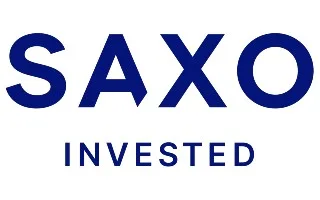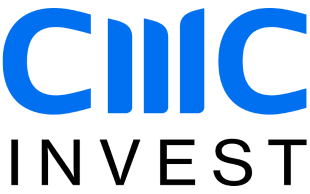$33.3
Baker Hughes Co (BKR) is a leading oil & gas equipment & services business with stocks listed in the US. It opened the day at US$32.97 after a previous close of US$32.67. During the day the price has varied from a low of USD32.63 to a high of USD33.45. The latest price was USD33.3 (25 minute delay). Baker Hughes is listed on the NASDAQ. All prices are listed in US Dollars.
How to buy shares in Baker Hughes
- Compare share trading platforms. To buy shares in a company listed in the US from Australia you'll need to find a trading platform that offers access to US stock markets. Look for a platform with low brokerage and foreign exchange fees.
- Open and fund your brokerage account. Complete an application with your personal and financial details, which will typically include your ID and tax file number. Fund your account with a bank transfer, credit card or debit card.
- Search for Baker Hughes. Find the share by name or ticker symbol: BKR. Research its history to confirm it's a solid investment that matches your financial goals.
- Purchase now or later. Buy today with a market order or use a limit order to delay your purchase until Baker Hughes reaches your desired price. To spread out your risk, look into dollar-cost averaging, which smooths out buying using consistent intervals and amounts.
- Decide on how many to buy. At last close price of US$32.67, weigh your budget against a diversified portfolio that can minimise risk through the market's ups and downs. You may be able to buy a fractional share of Baker Hughes, depending on your broker.
- Check in on your investment. Congratulations, you own a part of Baker Hughes. Optimise your portfolio by tracking how your stock — and even the business — performs with an eye on the long term. You may be eligible for dividends and shareholder voting rights.
Our top pick for
US stocks

Our top pick for
Best for beginner

Our top pick for
Dividend investing

Baker Hughes stock price (NASDAQ:BKR)
Use our graph to track the performance of BKR stocks over time.Baker Hughes shares at a glance
| Open | US$32.97 |
|---|---|
| High | US$33.45 |
| Low | US$32.63 |
| Close | US$33.3 |
| Previous close | US$32.67 |
| Change | US$0.63 |
| Change % | 1.9284% |
| Volume | 7,963,001 |
| 52-week range | US$26.1388 - US$37.0983 |
|---|---|
| 50-day moving average | US$31.797 |
| 200-day moving average | US$33.4864 |
| Target price | US$40.69 |
| PE ratio | 18.2514 |
| Dividend yield | US$0.8 (2.57%) |
| Earnings per share (TTM) | US$1.79 |
Use the fields above to explore the returns from a historical investment. Please refer to the charts further up this page to see performance over 5 years, or other periods. Past performance doesn't indicate future results. Capital is at risk.
Baker Hughes price performance over time
Historical closes compared with the last close of $33.3
| 1 week (2024-04-19) | 2.15% |
|---|---|
| 1 month (2024-03-26) | 1.43% |
| 3 months (2024-01-26) | 9.25% |
| 6 months (2023-10-26) | -4.91% |
| 1 year (2023-04-25) | 13.69% |
|---|---|
| 2 years (2022-04-25) | 8.33% |
| 3 years (2021-04-26) | 65.34% |
| 5 years (2019-04-26) | 30.18% |
Compare trading platforms to buy Baker Hughes shares
Is it a good time to buy Baker Hughes stock?
The technical analysis gauge below displays real-time ratings for the timeframes you select. However, this is not a recommendation. It represents a technical analysis based on the most popular technical indicators: Moving Averages, Oscillators and Pivots. Finder might not concur and takes no responsibility.
Is Baker Hughes under- or over-valued?
Valuing Baker Hughes stock is incredibly difficult, and any metric has to be viewed as part of a bigger picture of Baker Hughes's overall performance. However, analysts commonly use some key metrics to help gauge the value of a stock.
Baker Hughes's P/E ratio
Baker Hughes's current share price divided by its per-share earnings (EPS) over a 12-month period gives a "trailing price/earnings ratio" of roughly 18x. In other words, Baker Hughes shares trade at around 18x recent earnings.
That's relatively low compared to, say, the trailing 12-month P/E ratio for the NASDAQ 100 at the end of 2019 (27.29). The low P/E ratio could mean that investors are pessimistic about the outlook for the shares or simply that they're under-valued.
Baker Hughes's PEG ratio
Baker Hughes's "price/earnings-to-growth ratio" can be calculated by dividing its P/E ratio by its growth – to give 0.9599. A low ratio can be interpreted as meaning the shares offer better value, while a higher ratio can be interpreted as meaning the shares offer worse value.
The PEG ratio provides a broader view than just the P/E ratio, as it gives more insight into Baker Hughes's future profitability. By accounting for growth, it could also help you if you're comparing the share prices of multiple high-growth companies.
Baker Hughes's EBITDA
Baker Hughes's EBITDA (earnings before interest, taxes, depreciation and amortisation) is US$4 billion (£3.2 billion).
The EBITDA is a measure of a Baker Hughes's overall financial performance and is widely used to measure stock profitability.
Baker Hughes share price volatility
Over the last 12 months, Baker Hughes's shares have ranged in value from as little as US$26.1388 up to US$37.0983. A popular way to gauge a stock's volatility is its "beta".
Beta measures a share's volatility in relation to the market. The market (NASDAQ average) beta is 1, while Baker Hughes's is 1.445. This would suggest that Baker Hughes's shares are more volatile than the average for this exchange and represent, relatively speaking, a higher risk (but potentially also market-beating returns).
Baker Hughes financials
| Revenue TTM | US$26.2 billion |
|---|---|
| Operating margin TTM | 10.18% |
| Gross profit TTM | US$4.4 billion |
| Return on assets TTM | 4.95% |
| Return on equity TTM | 12.19% |
| Profit margin | 6.95% |
| Book value | 15.581 |
| Market capitalisation | US$32.8 billion |
TTM: trailing 12 months
Baker Hughes share dividends
Dividend payout ratio: 40.39% of net profits
Recently Baker Hughes has paid out, on average, around 40.39% of net profits as dividends. That has enabled analysts to estimate a "forward annual dividend yield" of 2.57% of the current stock value. This means that over a year, based on recent payouts (which are sadly no guarantee of future payouts), Baker Hughes shareholders could enjoy a 2.57% return on their shares, in the form of dividend payments. In Baker Hughes's case, that would currently equate to about $0.8 per share.
While Baker Hughes's payout ratio might seem fairly standard, it's worth remembering that Baker Hughes may be investing much of the rest of its net profits in future growth.
Baker Hughes's most recent dividend payout was on 22 February 2024. The latest dividend was paid out to all shareholders who bought their shares by 2 May 2024 (the "ex-dividend date").
Baker Hughes overview
Baker Hughes Company provides a portfolio of technologies and services to energy and industrial value chain worldwide. The company operates through Oilfield Services & Equipment (OFSE) and Industrial & Energy Technology (IET) segments. The OFSE segment designs and manufactures products and provides related services, including exploration, appraisal, development, production, rejuvenation, and decommissioning for onshore and offshore oilfield operations. This segment also provides drilling services, drill bits, and drilling and completions fluids; completions, intervention, measurements, pressure pumping, and wireline services; artificial lift systems, and oilfield and industrial chemicals; subsea projects and services, flexible pipe systems, and surface pressure control systems; and integrated well services and solutions. It serves oil and natural gas companies; the United States and international independent oil and natural gas companies; national or state-owned oil companies; engineering, procurement, and construction contractors; geothermal companies; and other oilfield service companies. The IET segment provides gas technology equipment, including drivers, driven equipment, flow control, and turnkey solutions for the mechanical-drive, compression, and power-generation applications; and energy sectors, such as oil and gas, LNG operations, petrochemical, and carbon solutions. This segment also provides rack-based vibration monitoring equipment and sensors; integrated asset performance management products; inspection services; pumps, valves, and gears; precision sensors and instrumentation, and condition monitoring solutions. It serves upstream, midstream, downstream, onshore, offshore, and small and large scale customers. The company was formerly known as Baker Hughes, a GE company and changed its name to Baker Hughes Company in October 2019. Baker Hughes Company was incorporated in 2016 and is based in Houston, Texas.
Baker Hughes in the news

Baker Hughes’ Emissions Abatement Technology Enables bp to Achieve Flare Emissions Monitoring Breakthrough

Baker Hughes Announces Dates for First Quarter 2024 Earnings Release and Webcast

NET Power Inc. (NYSE:NPWR) Q4 2023 Earnings Call Transcript
Frequently asked questions
More guides on Finder
-
How to invest in the Sun Silver IPO
Everything we know about the Sun Silver IPO, plus information on how to buy in.
-
How to invest in the Tasmea Limited IPO
Everything we know about the Tasmea Limited IPO, plus information on how to buy in.
-
How to buy Far Northern Resources shares
Steps to owning and managing Far Northern Resources shares.
-
What are the best commodity ETFs on the ASX in 2024?
Commodity ETFs can be used to hedge against inflation. Here's what they do, why they should be on your watchlist and how they can help your portfolio.
-
Best performing stocks on the ASX in 2024 (Updated weekly)
Looking for the best performing stocks in Australia? We update this list weekly.
-
How to buy Gol Linhas Aereas Inteligentes SA ADR (GOL) shares in Australia
Steps to owning and managing Gol Linhas Aéreas Inteligentes SA shares from Australia.
-
Superhero review: ASX and US share trading app
Trade ASX stocks and ETFs with a $2 brokerage fee and a low minimum investment of just $10.
-
The cheapest ETFs on the ASX
These ETFs have the lowest fees on the market, but does that make them the best?
-
Alternatives to CommSec: 7 trading platforms to consider
You've heard of CommSec but how does it stack up to the likes of IG, CMC Invest and other players in the market?
-
Westpac Share Trading Account review
Westpac Share Trading allows you to take control of your investments. Find out if its right for you.
Ask a Question